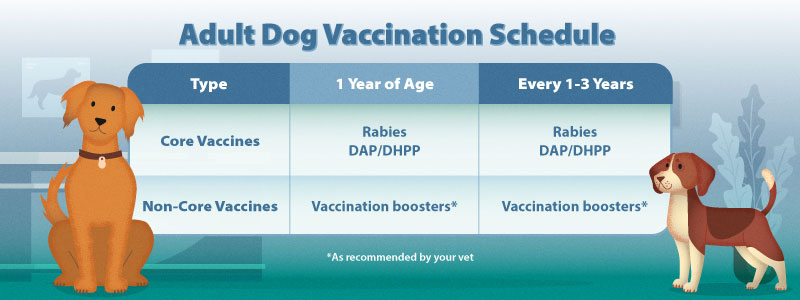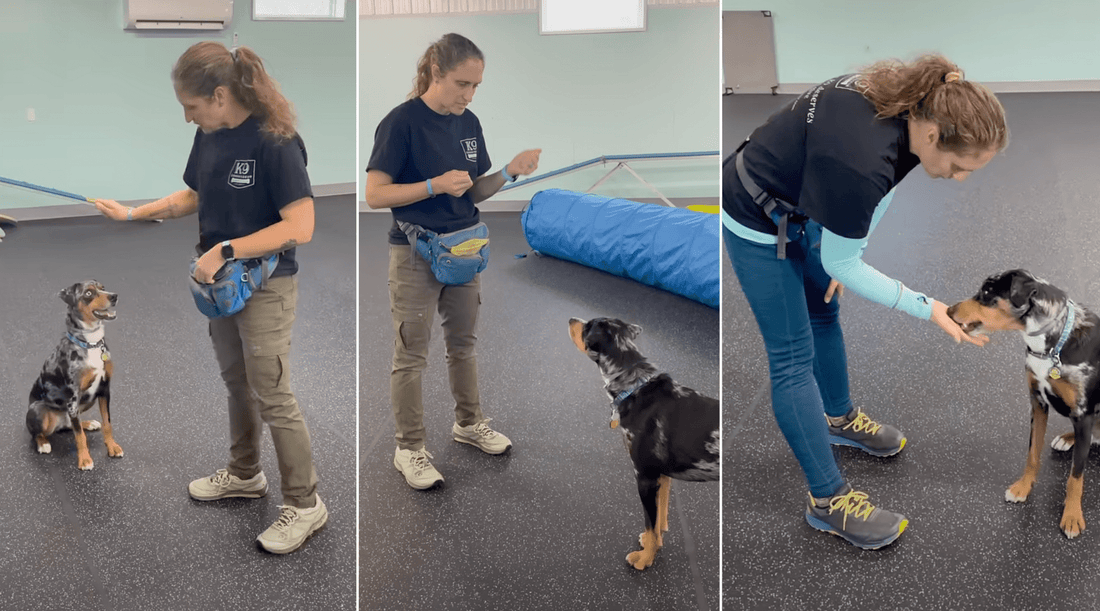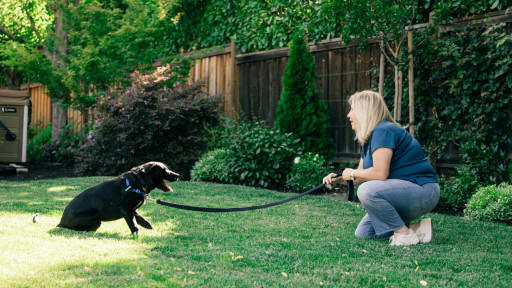You love your dog and want to keep them healthy and happy. But how often should you take your furry friend to the vet?
Knowing the right schedule for vet visits can save your dog from serious health problems and give you peace of mind. You’ll discover exactly when your dog needs a check-up, what signs to watch for, and how regular vet visits can add years to your dog’s life.
Keep reading to learn the simple steps you can take to protect your best friend.

Credit: www.carecredit.com
Routine Vet Visits
Routine vet visits are essential to keep your dog healthy and catch potential issues early. These visits help monitor your pet’s growth, prevent diseases, and maintain vaccinations. Knowing how often to bring your dog in depends on their life stage, health, and lifestyle.
Puppy Checkups
Puppies need frequent vet visits during their first few months. These checkups ensure they are growing properly and getting all necessary vaccinations.
Your vet will also guide you on deworming, flea control, and nutrition. Missing these early appointments can lead to preventable illnesses later. Have you noticed any unusual behavior in your puppy that you want your vet to check?
Adult Dog Exams
Once your dog reaches adulthood, annual exams usually suffice. These visits focus on maintaining health, updating vaccines, and checking for any developing problems.
During these exams, your vet may recommend blood tests or dental cleanings based on your dog’s condition. Regular checkups help catch issues like arthritis or allergies before they become serious. How closely do you watch for subtle changes in your dog’s habits?
Senior Dog Care
Senior dogs require more frequent visits, often every six months. Aging pets face increased risks for chronic diseases, so closer monitoring is key.
These visits include thorough physical exams and screenings for conditions like kidney disease or cancer. Adjusting diet and exercise may also be necessary as your dog ages. Are you prepared to adapt your care routine as your dog grows older?

Credit: www.lilyskitchen.co.uk
Vaccination Schedule
Keeping your dog healthy means following a clear vaccination schedule. Vaccines protect dogs from serious diseases. They help build strong immunity early in life and keep it strong as dogs age. Knowing which vaccines are essential and how often your dog needs them is key to good care.
Core Vaccines
Core vaccines are a must for all dogs. They protect against common, dangerous diseases that spread easily. These vaccines include:
- Distemper
- Parvovirus
- Adenovirus (Canine Hepatitis)
- Rabies
Puppies usually start core vaccines at 6 to 8 weeks old. They get several shots every 3 to 4 weeks until 16 weeks old. Adult dogs need core vaccines every 1 to 3 years, depending on local rules and the vaccine type.
Optional Vaccines
Optional vaccines protect against less common diseases or those specific to certain areas. These include:
- Bordetella (Kennel Cough)
- Lyme Disease
- Leptospirosis
- Canine Influenza
Talk to your vet about optional vaccines. They depend on your dog’s lifestyle and risk of exposure. Some dogs need them more than others.
Booster Shots
Boosters keep vaccine protection strong. After the initial shots, dogs need boosters at regular times. This helps maintain immunity over time.
Most boosters happen every 1 to 3 years. Puppies get more frequent boosters until fully protected. Ask your vet for a booster schedule tailored to your dog.
Common Health Issues
Dogs face several common health issues that require regular vet visits. Early detection can prevent serious problems. Regular check-ups help keep your dog healthy and happy.
Dental Care
Dental health is often overlooked but very important. Dogs can develop plaque and tartar buildup. This causes bad breath and pain. Untreated dental issues can lead to infections and tooth loss. Vets recommend dental cleanings once a year. Brushing your dog’s teeth at home also helps.
Parasite Prevention
Parasites like fleas, ticks, and worms affect dogs frequently. These pests cause itching, skin problems, and serious illnesses. Regular vet visits allow for parasite checks and prevention. Your vet will suggest the best flea and worm treatments. Staying on schedule helps protect your dog all year.
Allergy Management
Many dogs suffer from allergies to food or environment. Symptoms include itching, redness, and ear infections. Vets can identify allergy causes and offer treatment options. Managing allergies improves your dog’s comfort and health. Follow your vet’s advice on diet and medication for relief.

Credit: www.facebook.com
Signs To Visit The Vet Sooner
Knowing when to take your dog to the vet sooner than scheduled can make a huge difference in their health. Dogs can’t tell you when something feels wrong, so you need to watch closely for signs that need immediate attention. Recognizing these signs early helps prevent minor issues from turning serious.
Behavioral Changes
Has your usually playful dog suddenly become withdrawn or aggressive? Changes like increased irritability, lethargy, or confusion can signal underlying health problems. If your dog starts hiding more or stops responding to familiar commands, don’t wait—schedule a vet visit.
Sometimes subtle shifts in behavior, like increased panting or restlessness at night, may indicate pain or discomfort. Ask yourself: Is this behavior normal for my dog, or has something changed recently? Trust your instincts when you notice unusual patterns.
Physical Symptoms
Look out for visible signs like swelling, limping, or persistent coughing. These symptoms often point to injuries or infections that need prompt treatment. If your dog has sudden weight loss, vomiting, or diarrhea lasting more than 24 hours, it’s time to see a vet.
Other red flags include changes in appetite, excessive thirst, or difficulty breathing. Even something like sudden hair loss or skin irritation deserves attention. Quick action can help diagnose issues before they worsen.
Emergency Situations
Some situations require immediate vet care. If your dog has ingested something toxic, is choking, or has severe bleeding, call your vet or emergency animal hospital right away. Seizures, collapse, or difficulty standing are also emergencies that cannot wait.
Remember, timing is critical in emergencies. Don’t hesitate to act quickly if you see signs of severe distress. Your prompt response could save your dog’s life.
Vet Visits By Dog Breed
Vet visits vary depending on your dog’s breed. Different breeds have unique health risks and care needs that influence how often they should see the vet. Understanding these differences helps you keep your dog healthy and catch problems early.
Small Breeds
Small dogs like Chihuahuas and Dachshunds generally visit the vet at least once a year for check-ups and vaccinations. These breeds often live longer but can face issues like dental problems and joint diseases.
If your small dog has a history of dental issues, more frequent dental cleanings might be necessary. You might find that your vet suggests visits every six months to monitor these concerns closely. Have you noticed your small dog having trouble chewing or bad breath? Those are signs to book a vet appointment sooner.
Medium Breeds
Medium breeds such as Beagles and Cocker Spaniels typically require vet visits once or twice a year. They can develop conditions like obesity and ear infections, so regular monitoring is essential.
These breeds benefit from preventive care visits where your vet checks weight and skin health. If your dog is active and outdoors a lot, ask your vet about parasite prevention. Could more frequent visits improve your dog’s quality of life?
Large Breeds
Large dogs like Labradors and German Shepherds often need vet visits every six months. Their size makes them prone to joint problems and heart conditions that require early detection.
Frequent vet check-ups can help catch issues such as hip dysplasia before symptoms become severe. If your large dog starts showing stiffness or reluctance to move, don’t wait to schedule a visit. How well do you know the specific health risks of your dog’s breed?
Preparing For Vet Visits
Preparing for vet visits helps reduce stress for both dogs and owners. It ensures the visit goes smoothly and saves time. Knowing what to expect and having the right items ready creates a better experience. Planning ahead lets you focus on your dog’s health during the appointment.
Scheduling Tips
- Choose a time when your dog is calm and rested.
- Book appointments during less busy clinic hours.
- Set reminders on your phone or calendar.
- Schedule regular check-ups every 6 to 12 months.
- Allow extra time for unexpected delays or questions.
What To Bring
- Your dog’s medical records and vaccination history.
- Any medications or supplements your dog is taking.
- A leash and collar or harness for safety.
- A favorite toy or blanket to comfort your dog.
- Payment method and pet insurance details if applicable.
Questions To Ask
- What vaccines does my dog need at this age?
- Are there any signs of health problems to watch for?
- What diet or supplements do you recommend?
- How often should I bring my dog for check-ups?
- What should I do in case of an emergency?
Frequently Asked Questions
How Often Should Dogs Visit The Vet?
Dogs should visit the vet annually for a wellness check. Puppies and senior dogs may need more frequent visits. Regular check-ups ensure vaccinations are up-to-date and help detect any health issues early.
Are Yearly Vet Visits Necessary For Dogs?
Yes, yearly vet visits are crucial for maintaining a dog’s health. These visits help monitor your dog’s overall health and catch potential problems early, ensuring a longer and happier life for your pet.
When Should Puppies See The Vet?
Puppies should see the vet every three to four weeks until they are 16 weeks old. Regular visits ensure they receive necessary vaccinations, deworming, and health assessments to support their growth and development.
Do Senior Dogs Need Frequent Vet Visits?
Senior dogs need vet visits every six months. As dogs age, they become prone to health issues. Regular vet checks help manage their health and provide appropriate care and treatment as needed.
Conclusion
Regular vet visits keep your dog healthy and happy. Puppies need more frequent check-ups. Adult dogs usually visit once or twice a year. Older dogs may require visits every few months. Vaccines, dental care, and health checks happen during visits.
Watch your dog for signs of illness between visits. Early care prevents serious health problems later. Good vet care helps your dog live longer. Remember, each dog is unique. Talk to your vet about the best schedule for your pet.
Taking care now saves trouble and expense later. Keep your dog’s health a top priority.







